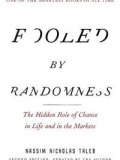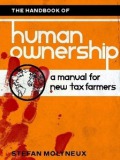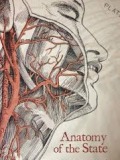Book

33 Questions About American History You’re Not Supposed to Ask
News flash: The Indians didn’t save the Pilgrims from starvation by teaching them to grow corn. The “Wild West” was more peaceful and a lot safer than most modern cities. And the biggest scandal of the Clinton years didn’t involve an intern in a blue dress.
Surprised? Don’t be. In America, where history is riddled with misrepresentations, misunderstandings, and flat-out lies about the people and events that have shaped the nation, there’s the history you know and then there’s the truth. In 33 Questions About American History You’re Not Supposed to Ask, New York Times bestselling author Thomas E. Woods Jr. reveals the tough questions about our nation’s history that have long been buried because they’re too politically incorrect to discuss, including:
Surprised? Don’t be. In America, where history is riddled with misrepresentations, misunderstandings, and flat-out lies about the people and events that have shaped the nation, there’s the history you know and then there’s the truth. In 33 Questions About American History You’re Not Supposed to Ask, New York Times bestselling author Thomas E. Woods Jr. reveals the tough questions about our nation’s history that have long been buried because they’re too politically incorrect to discuss, including:
aboutLiberty Portal
Liberty Portal is your gateway for free markets and free thinking. We aggregate open-sourced content to promote and popularize important people and lessons within the liberty movement.
suggested
Nassim Nicholas Taleb
Fooled By Randomness

If you are not reading Nassim Taleb, you are living under a rock. This book improves your thinking and includes unique insights on Austrian Economics, John Maynard Keynes, and Milton Friedman.
Read more
Stefan Molyneux
The Handbook of Human Ownership: A Manual for New Tax Farmers

Hey – seriously - congratulations on your new political post!
If you are reading this, it means that you have ascended to the highest levels of government, so it’s really, re-ally important that you don’t do or say anything stupid, and screw things up for the rest of us.
The first thing to remember is that you are a figurehead, about as relevant to the direction of the state as a hood ornament is to the direction of a car – but you are a very important distraction, the “smiling face” of the fist of power. So hold your nose, kiss the babies, and just think how good you would look on a stamp. A stamp, for mail… No, not email, mail. Never mind, we’ll explain later.
Now, before we go into your media responsibilities, you must understand the true history of political power, so you don’t accidentally act on the naïve idealism you are required to project to
Read moreIf you are reading this, it means that you have ascended to the highest levels of government, so it’s really, re-ally important that you don’t do or say anything stupid, and screw things up for the rest of us.
The first thing to remember is that you are a figurehead, about as relevant to the direction of the state as a hood ornament is to the direction of a car – but you are a very important distraction, the “smiling face” of the fist of power. So hold your nose, kiss the babies, and just think how good you would look on a stamp. A stamp, for mail… No, not email, mail. Never mind, we’ll explain later.
Now, before we go into your media responsibilities, you must understand the true history of political power, so you don’t accidentally act on the naïve idealism you are required to project to
Murray Rothbard
Anatomy Of The State

Murray Rothbard was known as the state's greatest living enemy, and this book is his most powerful statement on the topic. He explains what a state is and what it is not. He shows how it is an institution that violates all that we hold as honest and moral, and how it operates under a false cover. He shows how the state wrecks freedom, destroys civilization, and threatens all lives and property and social well being, all under the veneer of "good intentions."
Read more


